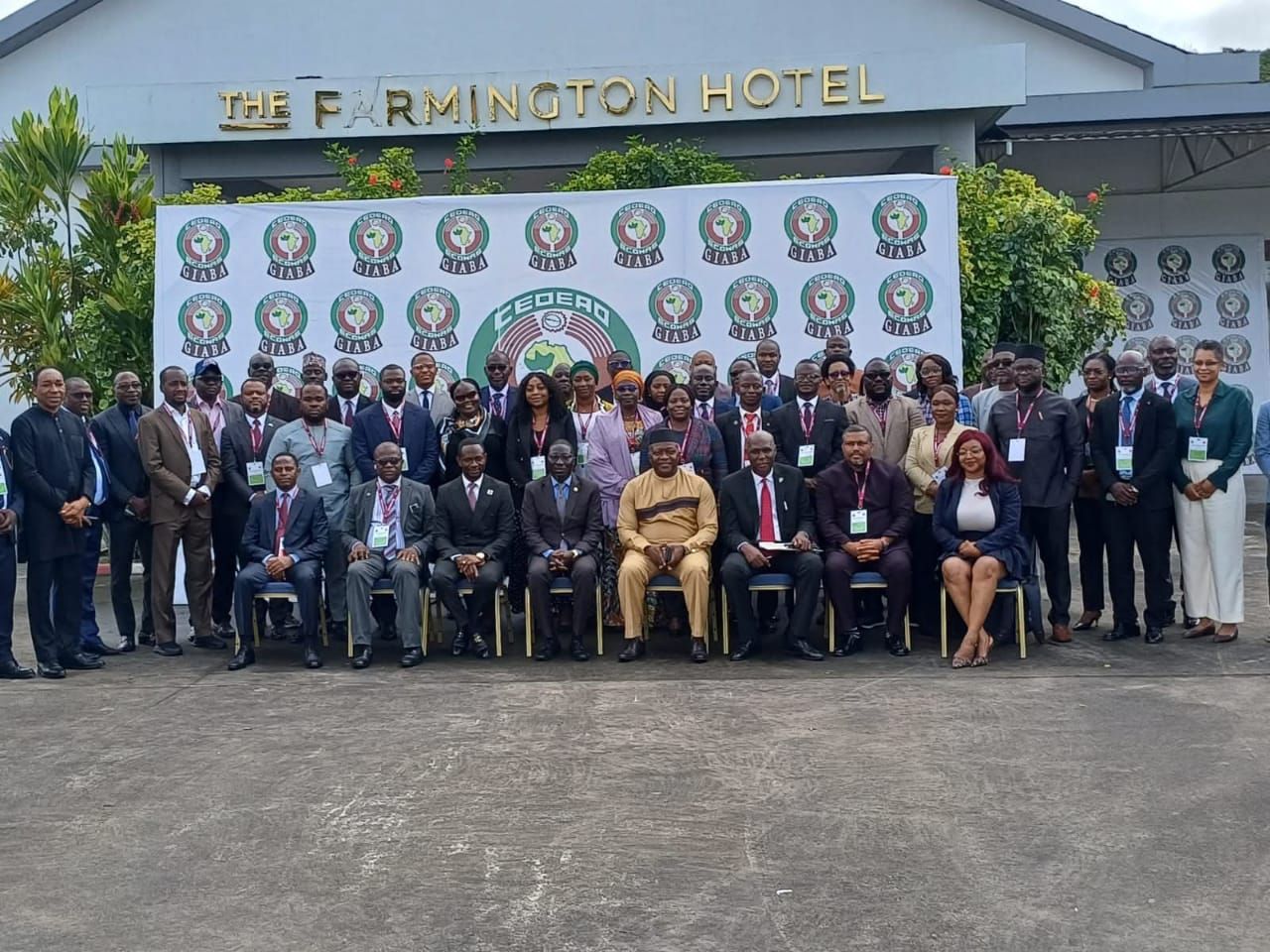GIABA Warns West Africa Faces “Serious Exposure” to Virtual Asset Risks, Calls for Urgent Regulatory Action
The Inter-Governmental Action Group Against Money Laundering in West Africa (GIABA) has raised a sharp alarm over the region’s growing vulnerabilities in the virtual asset space, warning that weak regulations and slow national responses are leaving West African economies exposed to money laundering, terrorist financing, and proliferation financing threats.
Speaking Monday at the opening of the 4th GIABA Public–Private Sector Consultative Forum at the Farmington Hotel, GIABA Director General Edwin W. Harris, Jr. said the region’s performance on global anti-money laundering standards remains “below average,” particularly regarding FATF Recommendation 15, which governs virtual assets and Virtual Asset Service Providers (VASPs). Harris disclosed that 16 out of 17 GIABA member states were rated non-compliant or partially compliant, a statistic he described as “a serious concern,” noting that criminals increasingly exploit anonymity and cross-border features of digital currencies.He emphasized that most West African countries still lack the legal and supervisory structures needed to prevent abuse of virtual assets.

“Understanding the risks and effectively regulating and supervising the sector are essential for deepening compliance and ensuring the integrity and stability of the financial system,” Harris stated.
He added that despite the Financial Action Task Force expanding AML/CFT obligations to virtual assets in 2018, many countries in the region have not yet conducted national risk assessments or instituted robust oversight. GIABA, in partnership with the African Development Bank (AfDB), organized the forum to strengthen national capacity on risk-based supervision of VASPs. The program targets improved understanding of FATF requirements, sectoral risk assessments, supervisory tools, and enhanced public-private coordination.Liberia: “Virtual Assets Are Like Fire — They Can Warm the House or Burn It Down.”
Liberia’s Minister of Finance and Development Planning, Augustine Kpehe Ngafuan, echoed the Director General’s concerns, emphasizing that although virtual assets offer opportunities for financial inclusion, they pose significant dangers when left unregulated. “Virtual assets are like fire. They can warm the house or burn it down. Our responsibility is to ensure they drive development, not destruction,” Minister Ngafuan said. Ngafuan disclosed that Liberia is taking deliberate steps to align with global AML/CFT standards, including strengthening the Financial Intelligence Agency (FIA), enhancing coordination among regulatory institutions, and developing a new framework to regulate digital assets.
He noted that Liberia’s Resolution for Inclusive Development identifies illicit financial flows as a threat to governance and economic stability, placing AML reforms at the center of institutional strengthening.Central Bank of Liberia: Drafting New Regulatory Frameworks Delivering remarks on behalf of Central Bank of Liberia (CBL) Executive Governor Henry F. Saamoi, Deputy Governor for Economic Policy Dr. Musa Dukuly reaffirmed Liberia’s commitment to improving oversight of virtual asset services. Dr. Dukuly highlighted key gaps in the country’s regulatory environment, including the absence of licensing systems for VASPs, limited market intelligence, weak cybersecurity frameworks, and insufficient inter-agency coordination.
The CBL and FIA are drafting new regulatory frameworks defining virtual assets and setting licensing requirements for VASPs. Liberia is working with the International Monetary Fund on capacity-building for regulators, law enforcement, and supervisory bodies. Authorities are preparing to integrate VASPs into the national AML/CFT risk assessment for the first time. “We are committed to strengthening risk-based supervision and building a safe and transparent virtual asset ecosystem,” Dr. Dukuly said.
FATF’s 2025 update shows that only a handful of countries globally have fully implemented effective VASP supervision. Many African jurisdictions remain at the early stages of implementation. With GIABA set to begin its third round of mutual evaluations, Harris warned that West Africa must move swiftly or face consequences that could affect international financial access and national stability.
Author: Cooper Sangar


